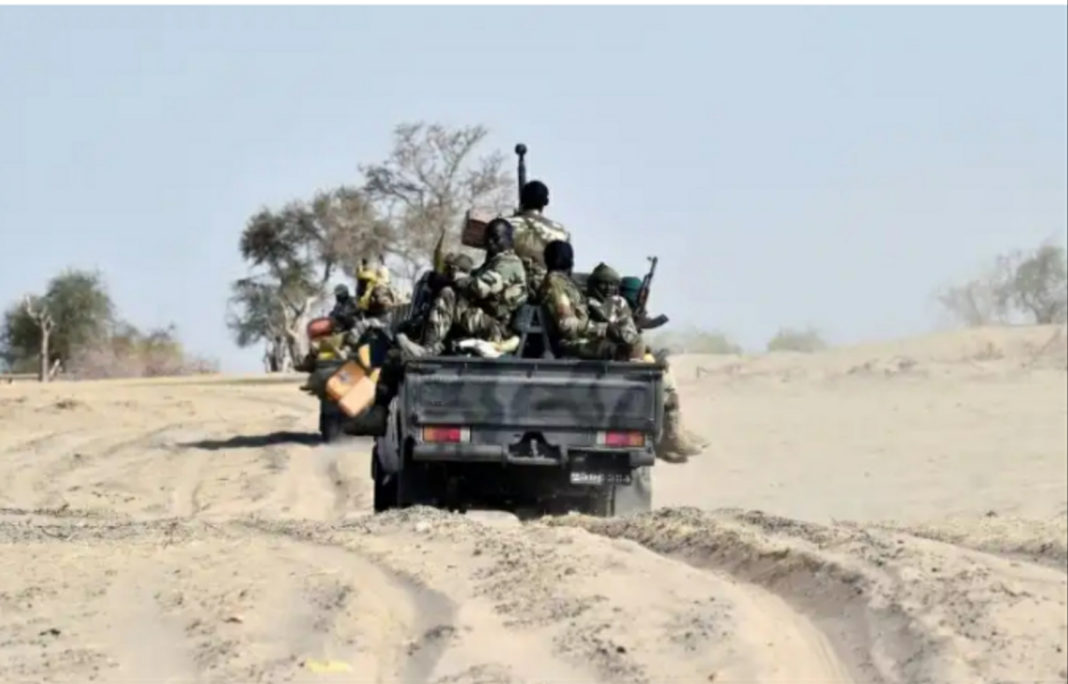When the Taliban took over Kabul, the mountainous capital city of Afghanistan last week effortlessly within two weeks of the exit of American troops, many Nigerians felt flabbergasted. They were afraid of what the fate of Afghans would be under the rule of the Taliban. They painted gory pictures of what the Taliban would do to Afghans.
Ironically, in spite of the two decades of violence in Afghanistan, life expectancy in Afghanistan is 65.29, while that of Nigeria is 60.87: 59.07 years for males and 62.78 for females.
According to the World Health Organisation, “the under five mortality ratio in Nigeria is 201 per 1,000 live births, meaning that one in five Nigerian children never reach the age of five.” In contrast, www.statista.com states as follows: “The current infant mortality rate for Afghanistan in 2021 is 47.451 deaths per 1000 live births, a 2.9% decline from 2020.The infant mortality rate for Afghanistan in 2020 was 48.869 deaths per 1,000 live births, a 2.82% decline from 2019. The infant mortality rate for Afghanistan in 2019 was 50.288 deaths per 1000 live births, a 2.74% decline from 2018.The infant mortality rate for Afghanistan in 2018 was 51.707 deaths per 1000 live births, a 3.15% decline from 2017.” This shows that Afghanistan has been experiencing a yearly decrease in infant mortality rate.
It seems democracy is not suited for all parts of the world. China does not practise democracy. Iran does not practise democracy. Saudi Arabia does not practise democracy. The United Arab Emirates, where Dubai is located, does not practise democracy. Yet, they are not doing badly.
With a manpower of approximately 186,000 soldiers, Afghanistan was still taken over in a matter of days with no resistance from the US-trained Afghan army and the people.
That points to a tacit endorsement of the rule of the Taliban. In the past 20 years, the Americans had trained the Afghan soldiers and equipped them. Even without the support of the Americans, the Afghans were supposed to have some measure of capacity to fight for their country. If the people were seriously opposed to the rule of the Taliban, they would have resisted the takeover of their country by the Taliban.
The fable about the encounter between the leopard and the tortoise comes to mind in this case. The leopard pounced on the tortoise to carry him away but the tortoise pleaded with the leopard to give him a second before taking him away.
The leopard dropped him with the full certainty that the slow tortoise would not be able to flee from him. The tortoise scratched the ground left and right, forward and backwards, and then told the leopard to carry him away. The leopard asked him the meaning of his action. The tortoise explained that if people saw the marks on the ground, they would conclude that two warriors fought bravely but one eventually overpowered the other. The import of the fable is that a person with self-worth should not be carried away easily without a fight.
The lack of resistance from the Afghans, therefore, confirmed that they silently wanted the rule of the Taliban. Now they have got it. The years ahead will confirm if they will fare better or worse under the Taliban.
In the case of Nigeria, we may live in denial, but the reason Boko Haram thrive in some parts of Northern Nigeria is because of the tacit support from the locals.
Boko Haram cannot thrive in areas where the locals don’t have sympathies for them. The first reason is that they will not have places of cover from where they will operate and have their activities hidden. The second reason is that the insurgents won’t get new recruits.
One big challenge facing Nigerian soldiers who fight against Boko Haram is that of sabotage. On many occasions have they complained that they regularly get ambushed, or that Boko Haram gets wind of their plans. It has been repeatedly stated that even within the military, there are informants working for Boko Haram. Similarly, some of the locals also work for Boko Haram, especially in information sharing.
In addition to Boko Haram, which has operated violently in Northern Nigeria for 12 years, there are also other groups which have made life scary for the residents in Nigeria.
These include the bandits and herdsmen, who have made kidnapping for ransom and mass killings regular occurrences. Hundreds of students of secondary schools and institutions of higher learning have been kidnapped. Some states in the North have closed schools for fear of being targeted. Many communities pay different levies to these groups to avoid being attacked. Farmers have also abandoned their farms out of fear of being killed.
In the South, there are also kidnappers who make life scary. They target road users or use intelligence to pick up people for ransom.
There are also separatist groups like the Indigenous People of Biafra and the Yoruba Nation whose supporters have regular clashes with the security operatives. These clashes have helped to heighten the fear in the land.
In addition to all these, the challenges of poor leadership, corruption, poverty, and lack of basic infrastructure persist. Nigerians feel that they are merely existing rather than living. It seems as if nobody is in charge of Nigeria and that Nigeria is moving without any direction. The hopelessness in the land is pervasive.
Whenever the problems facing Nigeria are enumerated, they seem like a hydra-headed monster or a vicious cycle. While thinking of how to solve one problem, one realises that such a problem cannot be solved until another problem is first solved. It just continues like that like a chainsaw.
The fear then becomes whether the mountain of problems facing Nigeria can be surmounted. If this mountain can be surmounted, how can it be done and when will it be surmounted? Sadly, rather than showing signs of solving its problems, Nigeria is even digging itself deeper into more problems and crises.
It is, therefore, strange that Nigerians who live in a country with such level of hopelessness, directionlessness, insecurity, instability, and fear would be more worried about the fate of citizens of another country rather than their own fate and that of their children, both born and unborn.











